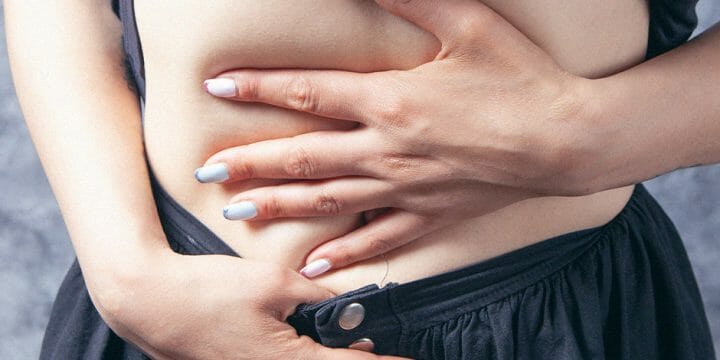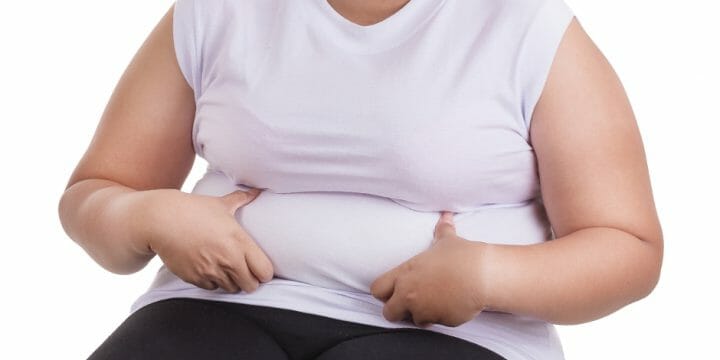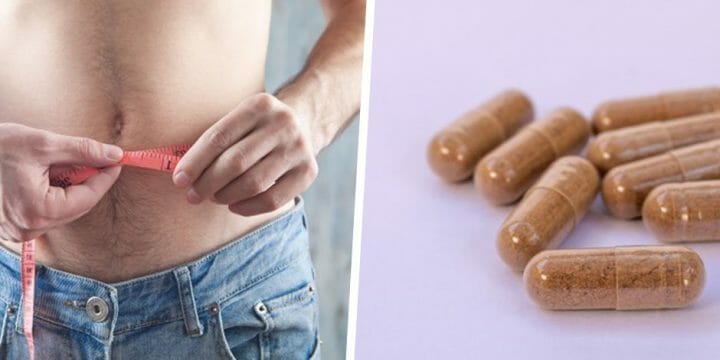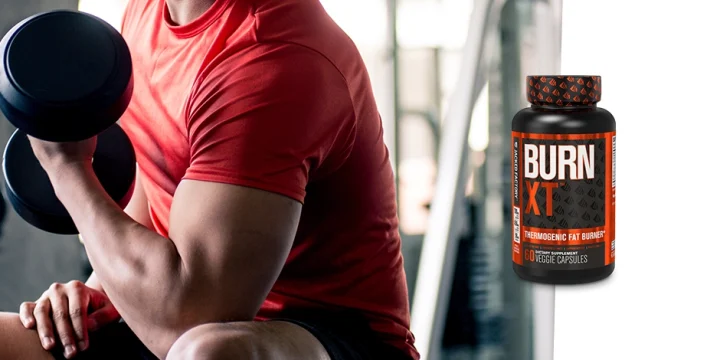In synergy with the gut microbiome, the soluble fiber (or viscous fiber) produces substances necessary for numerous health benefits, including healthy stool and weight loss.
One of today's biggest challenges regarding health is maintaining a healthy weight.
That's why I wanted to dive deeper into research on this topic. I spent hours reading science articles and journals in a quest to find out whether soluble fibers are good for weight loss.
Here’s what I’ve found.
Quick Summary
- Soluble fiber helps in losing belly fat by improving gut health and reducing appetite, leading to better weight management.
- Soluble fiber enhances digestive health, aiding in regular bowel movements and preventing constipation.
- Research published in PubMed indicates that a modest increase in fiber intake, about 10 grams extra per day, is associated with a reduced risk of belly fat accumulation.
- In my opinion, the integration of soluble fiber into daily diets is not only beneficial for weight loss but also crucial for long-term health and well-being.
Do Soluble Fiber and Gut Microbiome Lead to Less Belly Fat?
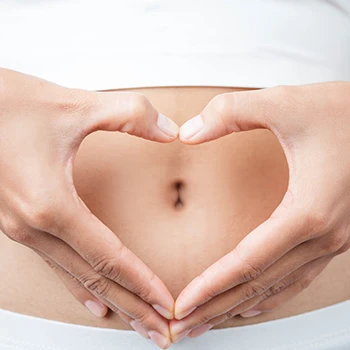
Soluble fiber and gut microbiome lead to less belly fat, as some studies published in Genes suggest [1]. Where is the link between these two?
What we eat has a huge impact on our microbiome structure.
And gut microbiome diversity structure may be more important for our weight control than calorie intake [2].
We can say that soluble fiber consumption might be the best way to keep the microbiome diversity structure healthy.
From my own fitness journey, I've found that incorporating soluble fiber significantly reduced my belly fat.
Soluble fiber plays a crucial role in gut microbiota health by acting as a prebiotic, nourishing beneficial gut bacteria. This interaction not only boosts overall health but also supports weight management, as these gut bacteria produce short-chain fatty acids that enhance gut health and aid in weight control.
Soluble fiber passes through our digestive system intact. In that form, it reaches the gut microbiome and becomes bacteria fuel, known as fermentable or prebiotic fiber, according to the Gut Microbes [3].
By digesting this type of dietary fiber, the gut bacteria produce substances called short-chain fatty acids. Those fatty acids might regulate the amount of fat we burn and the fat we create [4] [5].
They also may lead to losing weight as they signal the body to use its stored resources, according to the Journal of Lipid Research [6].
Dietary fiber, particularly soluble fiber, is crucial for both weight management and digestive health. It regulates digestion, absorbs water to prevent constipation, and supports regular bowel movements.
Soluble fiber also nourishes gut bacteria, promoting a healthy gut environment. Thus, a diet rich in dietary fiber aids in maintaining a healthy weight and digestive system.
Does Soluble Fiber Reduce Appetite?
Specific soluble fiber reduces appetite, and that's another way it may help you lose weight. According to studies published in European Journal of Nutrition, consuming more viscous fiber and lean protein led to caloric reduction and better weight management [7].
Personally, I've noticed a notable decrease in my appetite when I increased my soluble fiber intake.
"Fiber slows the speed of digestion, which makes you feel full and may help you eat less and stay satisfied longer."
- Marisa Moore, Integrative Dietitian
Specific soluble fiber impacts appetite in several different ways.
Some studies published in PubMed suggest it affects lowering the body's hunger hormone ghrelin [8]. It also may aid in producing hormones that make you feel satiated, such as cholecystokinin [9].
As it moves down the gut, soluble fiber absorbs water and transforms into a gel-like substance.
In that condition, it slows down bowel movement, increasing the time for absorption and digestion. That way, blood sugar levels get stable, leading to a prolonged feeling of fullness.
Foods Rich in Soluble Fiber
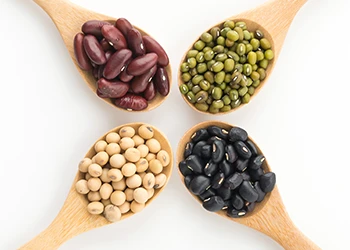
The rule of thumb is that you need to consume more soluble fiber if you want to maintain weight loss and get rid of the excess body fat.
And that means more plant foods on the menu. There are different sources of foods rich in soluble fiber.
Having regularly included foods like oats and sweet potatoes in my diet, I can attest to their effectiveness in weight management.
Popular foods that have good soluble/insoluble fiber ratio are:
- Oats
- Legumes
- Flaxseeds
- Beans
- Asparagus
- Chia seeds
- Sweet potatoes
- Brussels sprouts
Luckily, most of these foods are not expensive and are easy to find and prepare. When possible, try to have fresh fruits and vegetables for a snack.
Incorporating soluble fiber into daily meals can be both fun and creative. Suggestions include using whole-grain flour in baking, adding legumes to salads, or incorporating high-fiber fruits into snacks.
How Much Soluble Fiber is Necessary?
It might be necessary to take 25 grams of fiber daily for a 2,000-calorie diet. In my training regimen, aiming for 25 grams of fiber daily has been a game changer for maintaining my health and fitness.
If you aim to lose weight, consuming slightly more fiber, around 30 grams a day, may help with that [10].
Thirty grams a day may support other health benefits, improving the body's response to insulin and lower blood pressure.
Some studies published in PubMed suggest that even a slight increase in fiber intake by 10 grams was linked to a lower risk of gaining belly fat [11].
Either way, be sure to increase the intake in a gradual manner.
Don't consume too much fiber straight away, as a high fiber diet, without preparation, could cause some minor side effects such as stomach bloating and diarrhea.
And remember to increase your water intake because soluble fiber is dissolved in water. Eight glasses a day will help your fiber form a gel-like structure more efficiently and contribute to the feeling of fullness.
Could Fiber Supplements Help With Weight Loss?
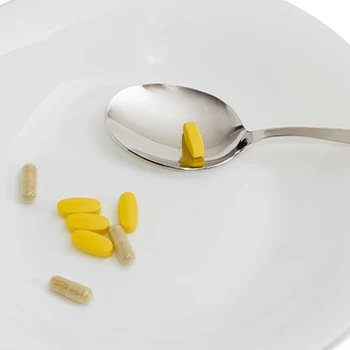
For those on a carnivore-based diet or preferring non-plant foods, fiber supplements like inulin, glucomannan, and psyllium husk are viable alternatives.
Research published in Journal of Obesity suggests these supplements can aid in weight loss by reducing appetite and potentially slowing metabolism [12].
Either way, more studies need to be conducted to prove supplement efficiency.
Based on my experience with clients on carnivore diets, supplements like psyllium husk can be effective in supplementing their fiber intake.
While fiber supplements like inulin, glucomannan, and psyllium husk can support weight loss efforts, they are not a substitute for fiber-rich whole foods.
Supplements can help reduce appetite and regulate metabolism, but they are best used as an adjunct to a diet rich in natural fiber sources.
Emphasizing a balanced diet that includes whole foods is essential for optimal health.
Related Articles:
FAQs
What Are Soluble Fibers?
Soluble fibers are a type of dietary fiber that dissolves in water to form a gel-like substance in the gut. They are found in foods like oats, nuts, beans, lentils, apples, and blueberries. Soluble fibers help lower blood cholesterol and glucose levels and are beneficial for gut health and digestion.
Is Soluble or Insoluble Fiber Better for Weight Loss?
Soluble Fiber is better for weight loss than its insoluble counterpart. Soluble fiber causes the body to release more satiety hormones that decrease appetite.
But insoluble fiber definitely has its benefits, not the least of which is regular and soft stool.
Does Soluble Fiber Count as Carbs?
Soluble Fiber doesn't count as a carb. Both soluble and insoluble fiber are plants' forms of carbohydrates.
The difference is that they can't be broken down to glucose and absorbed by the digestive system.
Does Soluble Fiber Have Calories?
Soluble fiber has calories, and this fiber is registered as caloric on the FDA ingredient list.
It releases a certain amount of energy when broken down by the microbiota in the gut.
References:
- https://www.ncbi.nlm.nih.gov/pmc/articles/PMC5867888
- https://pubmed.ncbi.nlm.nih.gov/27666579/
- https://www.ncbi.nlm.nih.gov/pmc/articles/PMC5390821/
- https://www.ncbi.nlm.nih.gov/pmc/articles/PMC4756104/
- https://pubmed.ncbi.nlm.nih.gov/25500202/
- https://www.ncbi.nlm.nih.gov/pmc/articles/PMC3735932/
- https://link.springer.com/article/10.1007/s00394-020-02224-1
- https://pubmed.ncbi.nlm.nih.gov/19369431/
- https://pubmed.ncbi.nlm.nih.gov/11340104/
- https://www.acpjournals.org/doi/10.7326/M14-0611
- https://pubmed.ncbi.nlm.nih.gov/21681224/
- https://www.ncbi.nlm.nih.gov/pmc/articles/PMC3892933/
About The Author
You May Also Like

